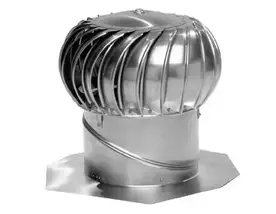All things being equal wind driven turbine vents also known as a whirlybird roof vent do move more air than flat vents but only when the wind blows.
Squeaky roof turbine vents.
It was very annoying.
I climbed up to the roof to quiet them down with a long lasting wd 40 specialist product.
Climb the ladder remove the access panel and enter the attic.
Our turbine roof vents whirlybirds were really noisy and had some rattling that was causing some vibration in the house.
Since turbines are attached directly to attic spaces they can siphon away that moist air effectively.
Flat roof vents have no moving parts to break or squeak but don t vent as much air as wind driven vents.
Fortunately it is a very fixable problem and depending on your property perhaps even one you can fix yourself.
Find the noisy turbine and apply the lubricant to the moving parts of the turbine.
Place the stepladder under the attic access space.
Locate the turbine vent.
Extend your ladder leaning it against a solid gutter or roof element.
Roof vents need to move hot humid air from the attic to the outdoors so that humidity doesn t build up and cause mold rot or other moisture problems that findlay roofing regularly sees when dealing with attic issues.
How to fix a squeaky turbine vent step 1.
Click here to get free fast bids from local roofers who can install turbine vents.
The cause of a squeaky roof turbine is typically from the lubricant drying out.
This causes the metal parts to rub together and make a squeaking noise.
Wind driven roof vents will pull more air from the attic but only when the wind is blowing.
Disclaimer of liability this channel produces videos for entertainment purposes only.
Our spinning rooftop turbine vents were squeaking and squealing in the wind.
Our spinning rooftop turbine vents were squeaking and squealing in the wind.
If the winds are still the vents still allow air to drift up and out of the attic space although not nearly as much.
Be sure to lubricate the bearings.
Game of life shall not be held liable for any improper or incorrect use.
A single 14 inch diameter turbine vent that is subjected to 15 mph winds can expel up to 1 342 cfm of air.
So you have to lubricate the parts to get it to stop the squeaking.
The majority of the time a squeaking roof turbine vent is caused by the lubricant in the bearings drying out causing various metal parts to rub against each other which in turn generates that unpleasant squeaking noise you hear.
These are located in the track where the pipe coming out of the roof meets the spinning part of the vent.
I climbed up to the roof to quiet them down with a long lasting wd 40.
Insert a small wooden dowel to keep the turbine from spinning if it happens to be.

